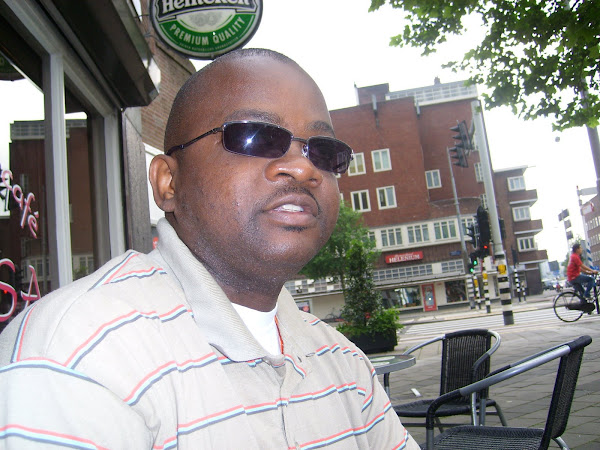
The Winner of big brother II Richard talking to the media at Holiday Inn Hotel after arriving in Dar.
The talk of town now is the lucky young man, Richard Bezuidenhout (gosh!! How does one pronounce that?, I mean the last name), who, in the course of the BBA II contest, was almost vilified by the same people who regard him as a hero now.
Well, he is a hero, isn't he? He has put Tanzania on the map of fame. I mean, he has made Tanzania known to a score of more people in the world of entertainment.
These people were put together in the `House` and left to do what their natural instinct told them to do, or in short, to live a natural life without pretences or inhibitions.
They were supposed to interact naturally and one by one they were voted out, or nominated, to use their language, of the `House`.
Women and men, strangers to each other, were put together and the world was allowed to watch how they behaved towards each other and to all as a group.
They knew that the world was watching them twenty-four hours throughout the 98 days they stayed in the `House`. It surely must have been stressing for them.
Richard's behaviour at times annoyed most of his people at home, especially when he appeared clad in lady's underwear, braziers and all that, and getting himself pitifully drunk and attempting to do bad things to some girls in the `House`.
Sometimes the inmates were shown partying together, moving about in the tiniest of covering on their bodies. Richard was one of them, of course.
The media has reported that our hero, Richard, had a tumultuous time in the House. That, I would say, is an understatement. That was why his people at home, I mean Tanzanians, were angry with him.
They were irritated because his behaviour was not compatible with the norms and traditions of Tanzanians. It was an embarrassment to them.
To say that he had a few tantrums is to be polite. That was why he survived nominations more than five times on his way to scooping the 100,000 US dollars.
Isn't the fact that he won the contest a surprise, at least to some of us? Or are we blinded by our partisanship or patriotism? Are we saying the end justifies the means, if it does at all?
But, as I said earlier, Richard is our hero.
He has won an equivalent of about 130 million/- for himself. Hopefully, he is going to invest in the country and help in the process of job creation and reduce unemployment, even by a small percentage.
What has surprised me most is, however, the way Richard's wife, Rikki, has been demonised by most of us who seem to have been inebriated by Richard`s victory.
Some of us have gone so far as labeling her a racist, unfit to be her husband's wife. What is her crime?
I am not sure whether Richard's sister, who seems to be so bitter with her sister-in-law, is married, but if she is, I am not sure she would have reacted very differently from Rikki if she saw her husband do the things Richard was doing in the House. Unless, of course, there's something wrong in the love between the couple.
But when Richard says he really fell for Tatiana, the Angolan girl in the House, and that he was ready to take her to the alter, when he has already tied the knots with Rikki, how do we expect his wife to react? Isn't Richard telling his wife in so many words, that she can go to hell?
You would say Rikki is jealous, yes, but who isn't jealous of his or her spouse? Don't we love to keep our beloved to ourselves and ourselves alone?
Is that racism? Did we expect Richard's wife to possess a granite heart, to turn a blind eye to her husband's riotous behaviour in the House? Is it because of the USD 100,000?
Maybe Rikki's fault was to show her emotions openly. We are forgetting that she was reacting to her husband's pronouncements, not to her father-in-law.
If our sisters are honest, wouldn't Richard's remarks about Tatiana annoy them had he been their husband?
But above all, what lessons are Tanzanians supposed to learn from the BBA programme?
What is it supposed to teach our youths? What morals do we learn from it? I suggest that we do some reflections on the programme.

No comments:
Post a Comment